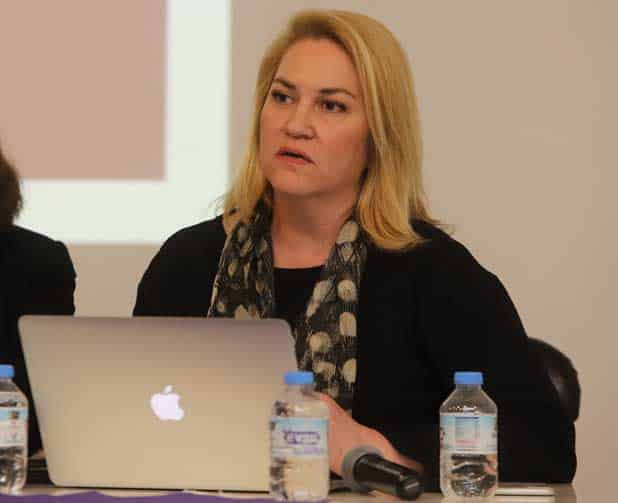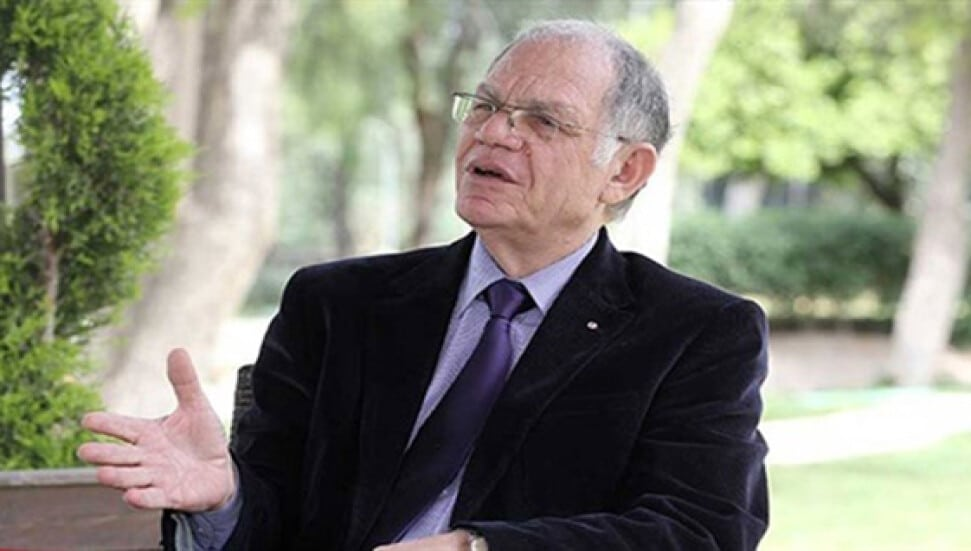March 31, 2024
Ozdil Nami
As the United Nations secretary-general’s personal envoy wrestles to break the seven-year standstill in the Cyprus negotiations, the Turkish Cypriot pro-solution camp seems to agree that the new process should have pre-deteremined timeframes and clear consequences of failure if it is to have any chances of success.
The Cyprus peace process has reached the deepest impasse in its history after the latest round of negotiations failed in Crans-Montana in July 2017. Since then, Ankara withdrew its support for continued negotiations on a bicommunal, bizonal federation and the current conservative nationalist Turkish Cypriot leader, elected with the strong backing of Ankara in 2020, wants to record the breakaway state’s ‘sovereign equality’ before participating in any settlement negotiations.
Long-standing federal solution advocates and opinion leaders in the northern part of Cyprus criticise the Turkish and Turkish Cypriot leaderships for this change of course, but warn that without a different methodology introducing significant changes to the negotiating process it would be impossible to reach a federal solution.
Nami
After the experiences of the Annan Plan, the Talat-Christofias negotiations and then the failure at Crans-Montana “all confidence has been lost,” explains former chief negotiator Ozdil Nami, who served under two former Turkish Cypriot leaders Mehmet Ali Talat and Mustafa Akinci.
An adamant supporter of a federal solution, Nami argues that the negotiations should be picked up from where they were left in Crans-Montana in 2017, finalised within a pre-determined timeframe and put to simultaneous referendums in which Greek Cypriots should be asked to choose between a federal solution and a two-state solution, and Turkish Cypriots should be asked to choose between a federal solution and an unrecognised, isolated breakaway state that also stands to lose all advantages it gained for the positive vote it gave in the Annan Plan in 2004.
“There is not a single Greek Cypriot leader anymore, who can convince any Turkish Cypriot or Turkish leader that they mean business,” insists Nami. “Without this setup, the sides, and especially the Turkish side will never have the trust to say its final word or make its final offer.”
This lack of confidence was also mentioned by the International Crisis Group in a recent report, which stated as “a fundamental issue” that now “neither party believes that the other will necessarily negotiate in good faith.”
In January, in response to a tweet by the UN announcing the appointment of Maria Angela Holguin as Secretary-General Antonio Guterres’ personal envoy on Cyprus “to search for common ground on the way forward,” Nami tweeted: “Asking if common ground exists is waste of time, there isn’t [common ground]… In Crans-Montana a solution was on the table, still we failed. Problem is not the content but the process.”
Nami explains that “the main job of the envoy should be to help determine where we should we start, how long should we allow ourselves to negotiate, what happens at the end of that timeframe, what kind of a deadlock resolving mechanism can we create and what happens when we go to referendum and if one side says no.”
He underlines that all these should be negotiatied and agreed on by both sides before any new process begins.
CTP’s Fikri Toros
CTP
The main opposition Republican Turkish Party CTP in a recent letter to Holguin, reiterated its commitment to a federal solution based on political equality in line with the UN Security Council resolutions and parameters, but also stated that any future process should have a timetable “determined with a sense of urgency”, ensure participation of the civil society, and guarantee “that there will be no return to the status quo”.
There must be “a set time frame if not a target date whereby negotiations must be concluded”, explains CTP’s Fikri Toros. “No peace process has reached success without a target date… And there must be a cost attached to a possible reccurencce of yet another failure. Measures must be taken to abandon any likelihood of the continuation of the status quo… There is no such thing as a frozen conflict. As long as it is not solved, it is bound to flare up.”
Toros says the CTP has no concrete proposals on what that ‘cost’ might be, but says it should be negotiated by the sides.
“Leaving the negotiations or rejecting the prospective political agreement must have a ‘cost’ attached to it… Cyprus and its people cannot afford another failure,” he says.
Toros also criticises the Turkish Cypriot and Turkish leaderships for abandoning the goal of a federal solution. He recently likened the new Turkish policy of demanding a two-state solution to the Cyprus problem as a “love of loneliness”.
Tatar after his most recent meeting with Holguin earlier this month reiterated his stance on ‘sovereign equality’ and equal international standing for the Turkish Cypriot side in order to resume talks.
“The demand of ‘sovereign equality’ is not new,” says Nami. “It dates back to Denktash’s confederation proposal in 1998. This is a repackaging of that proposal.”
Ipek Borman
Borman
Ipek Borman, who served in the negotiations teams of both Talat and Akinci, agrees that any new negotiations process should be much more results-oriented with benchmarks to keep the sides on track towards a final outcome; include mechanisms to overcome impasses; and bear a clear understanding that there will be no return to the status quo at the end of the process with clearly determined consequences of a failure. She also emphasises the importance of a more participatory process with the participation of civil society, especially women and youth.
She warns however against alienating one another when trying to lay the building blocks of a new process.
“I am not willing to consent to another open-ended process that is at the mercy of the two leaders. That would only lead to fostering disappointments and killing hopes,” says international relations expert Borman. “But if we truly want to achieve a result that will lead us to a common future, then we should be able to convince one another wholeheartedly as Turkish Cypriots and Greek Cypriots to work together towards that goal.”




